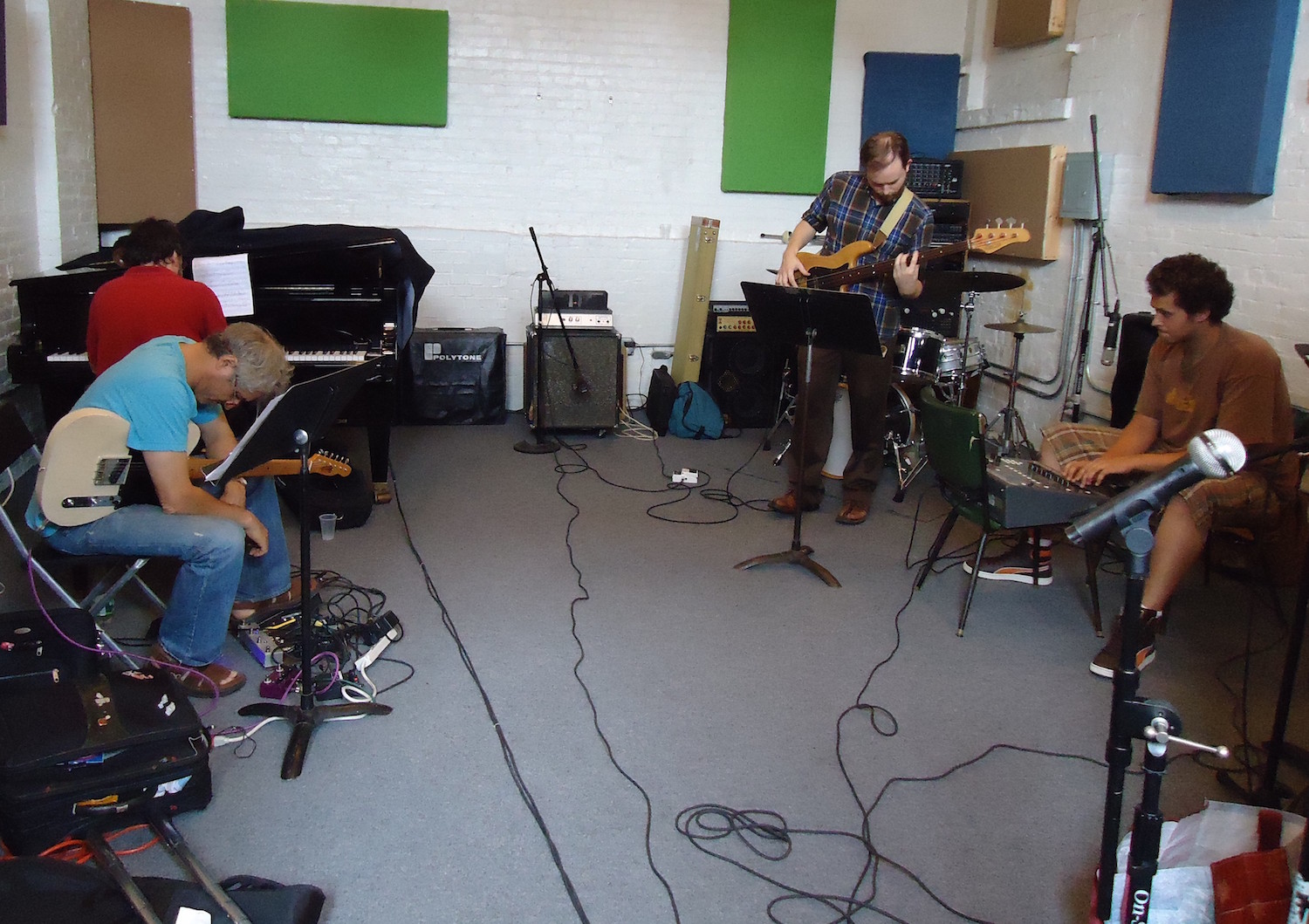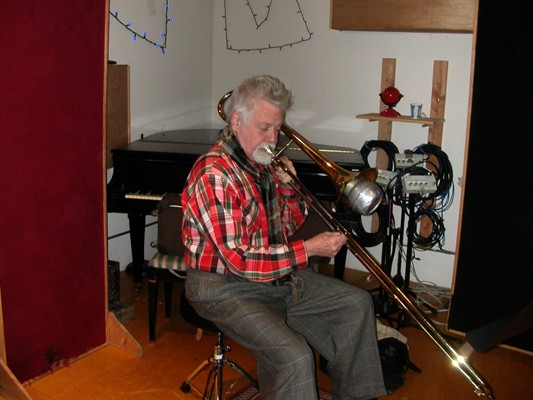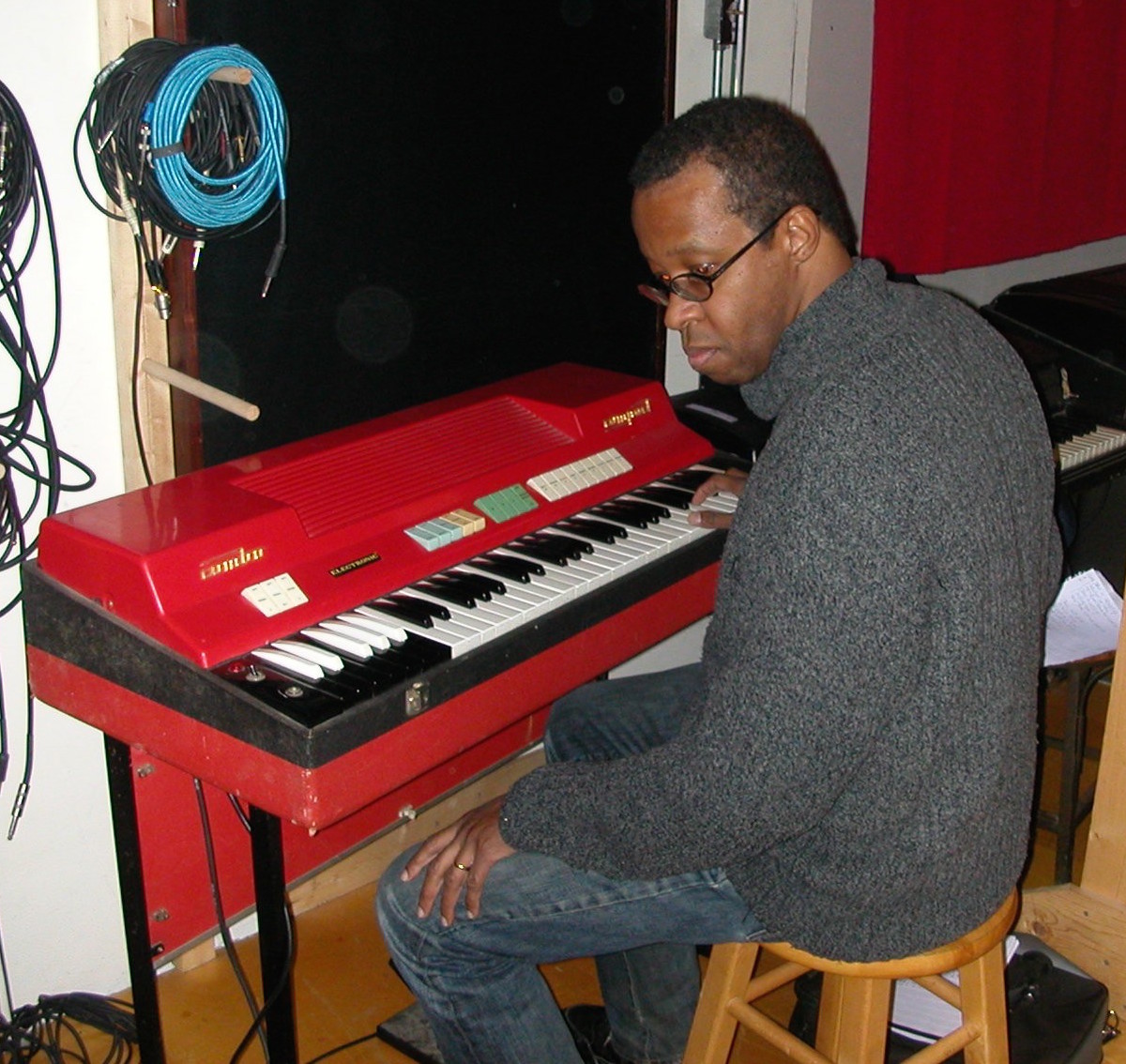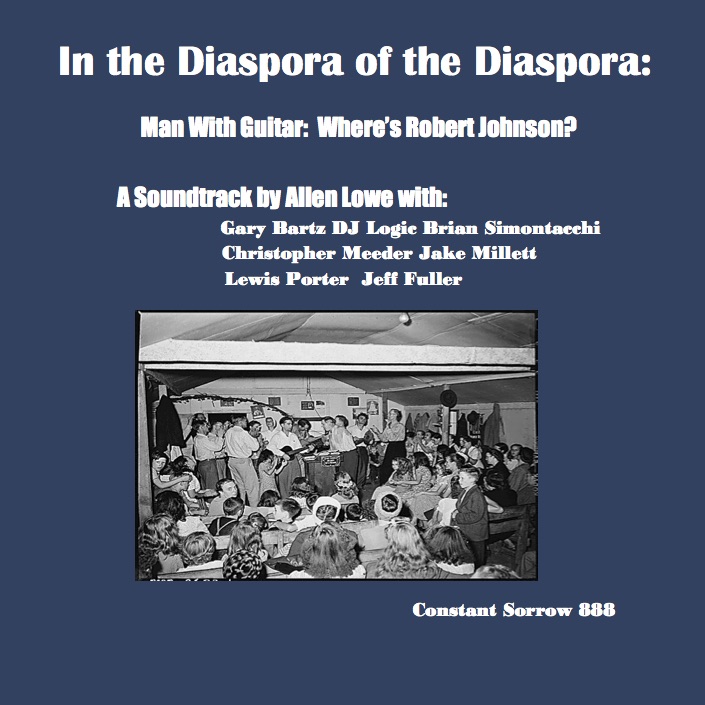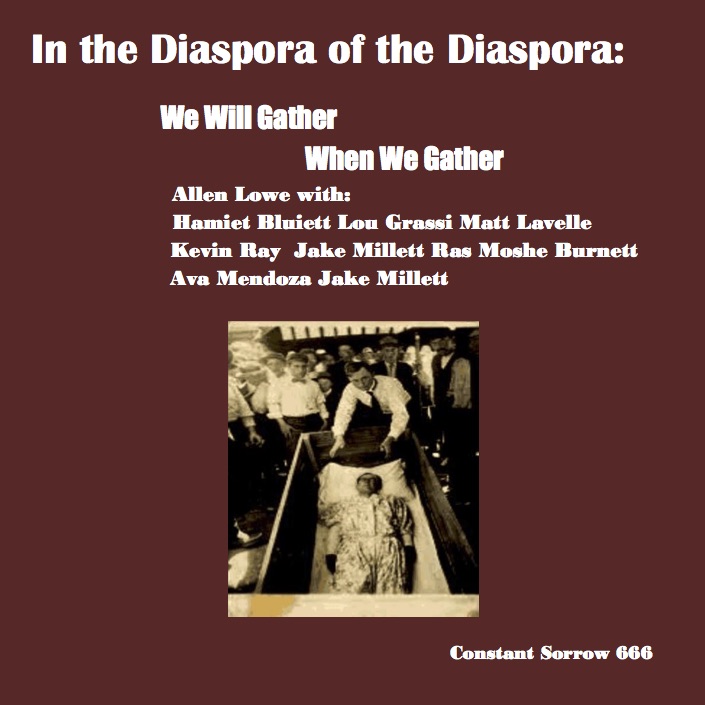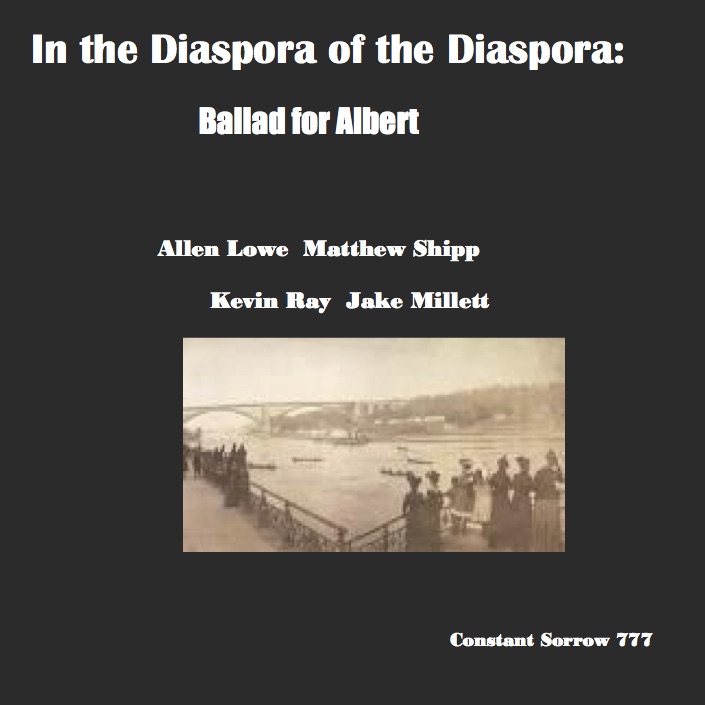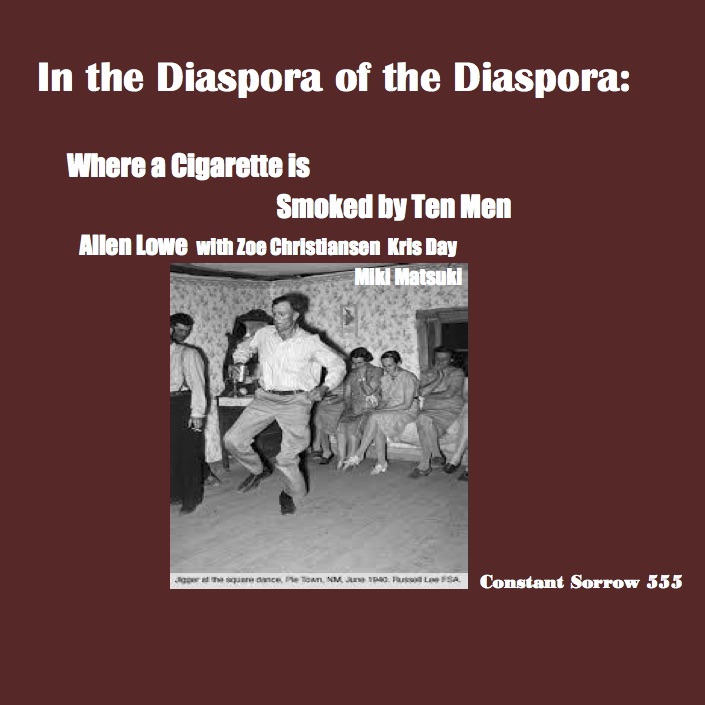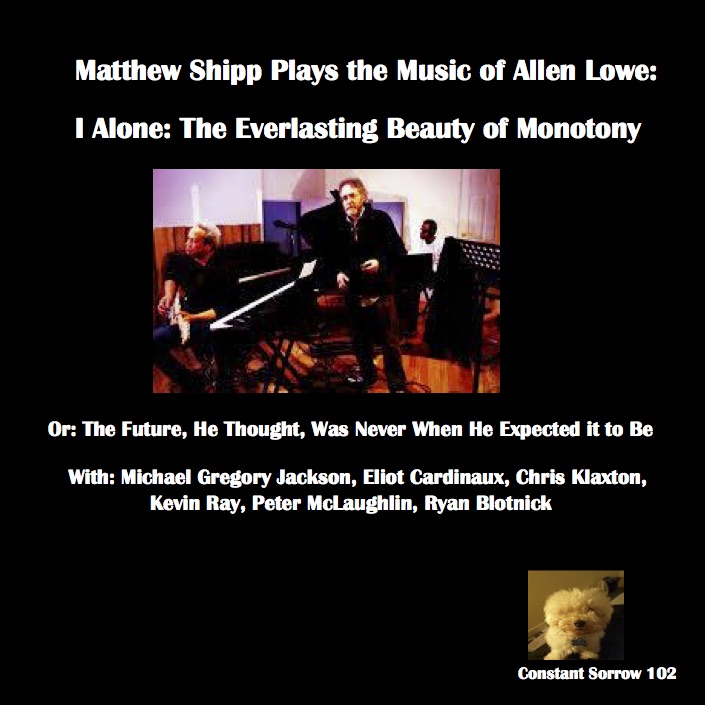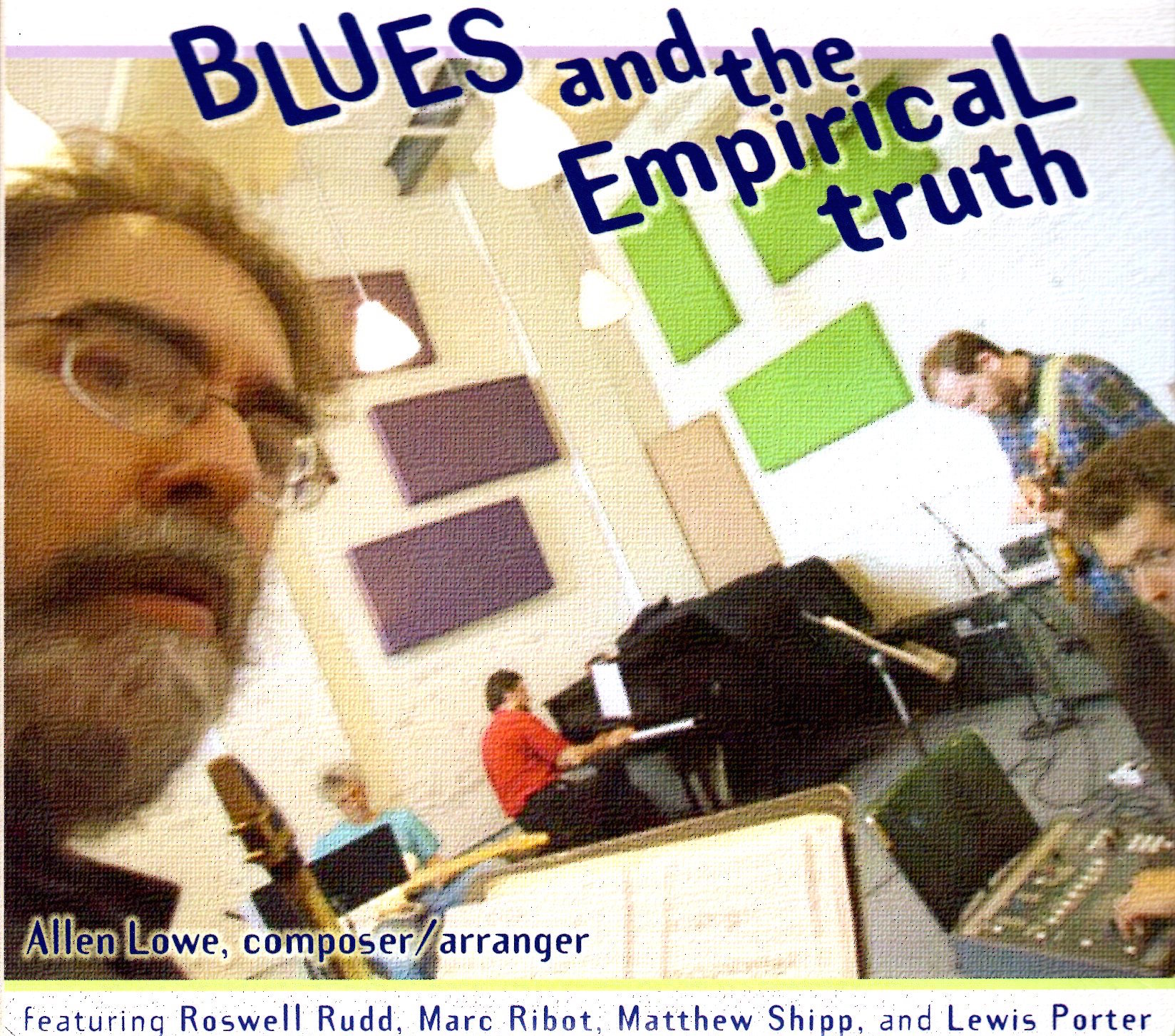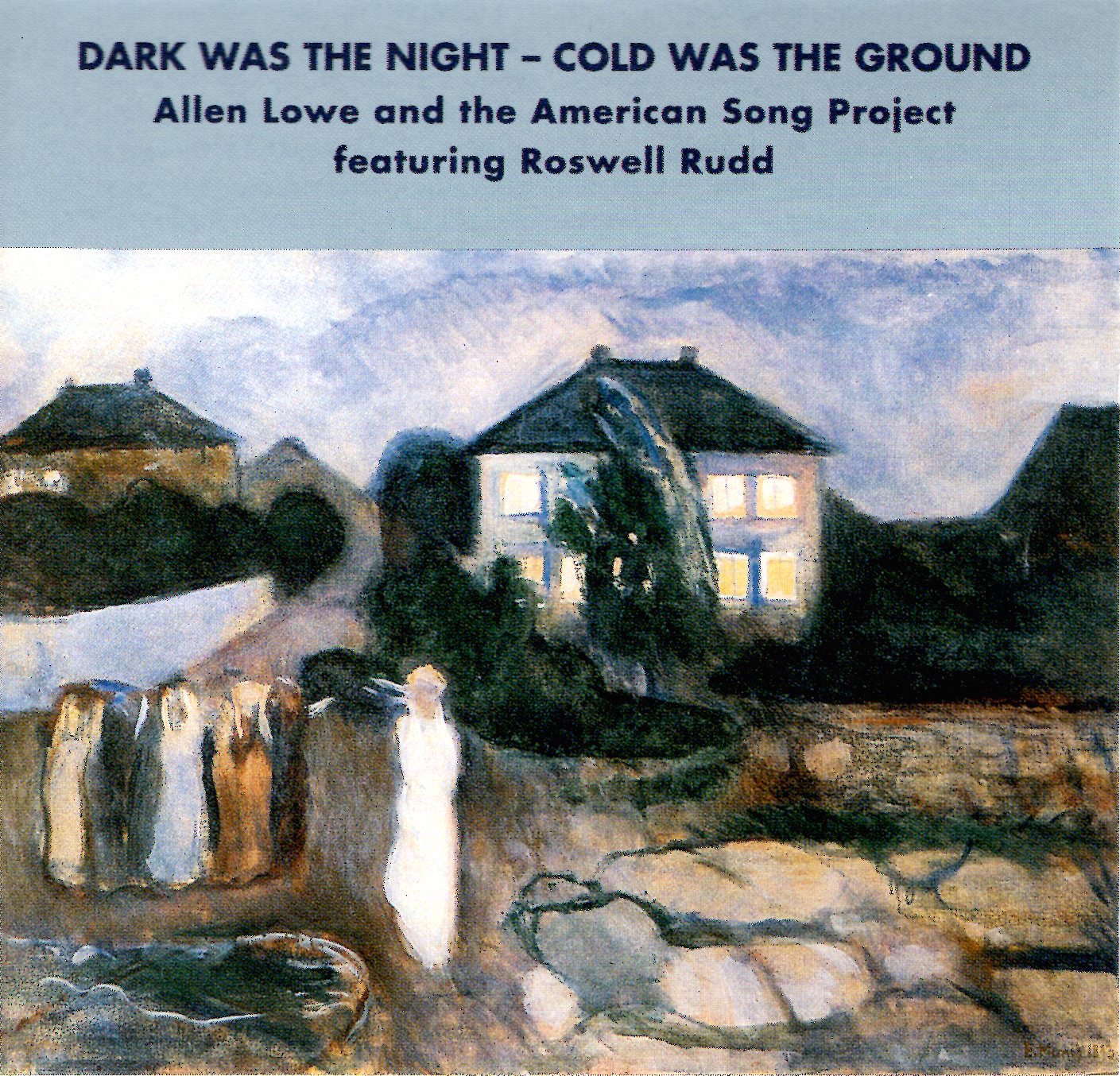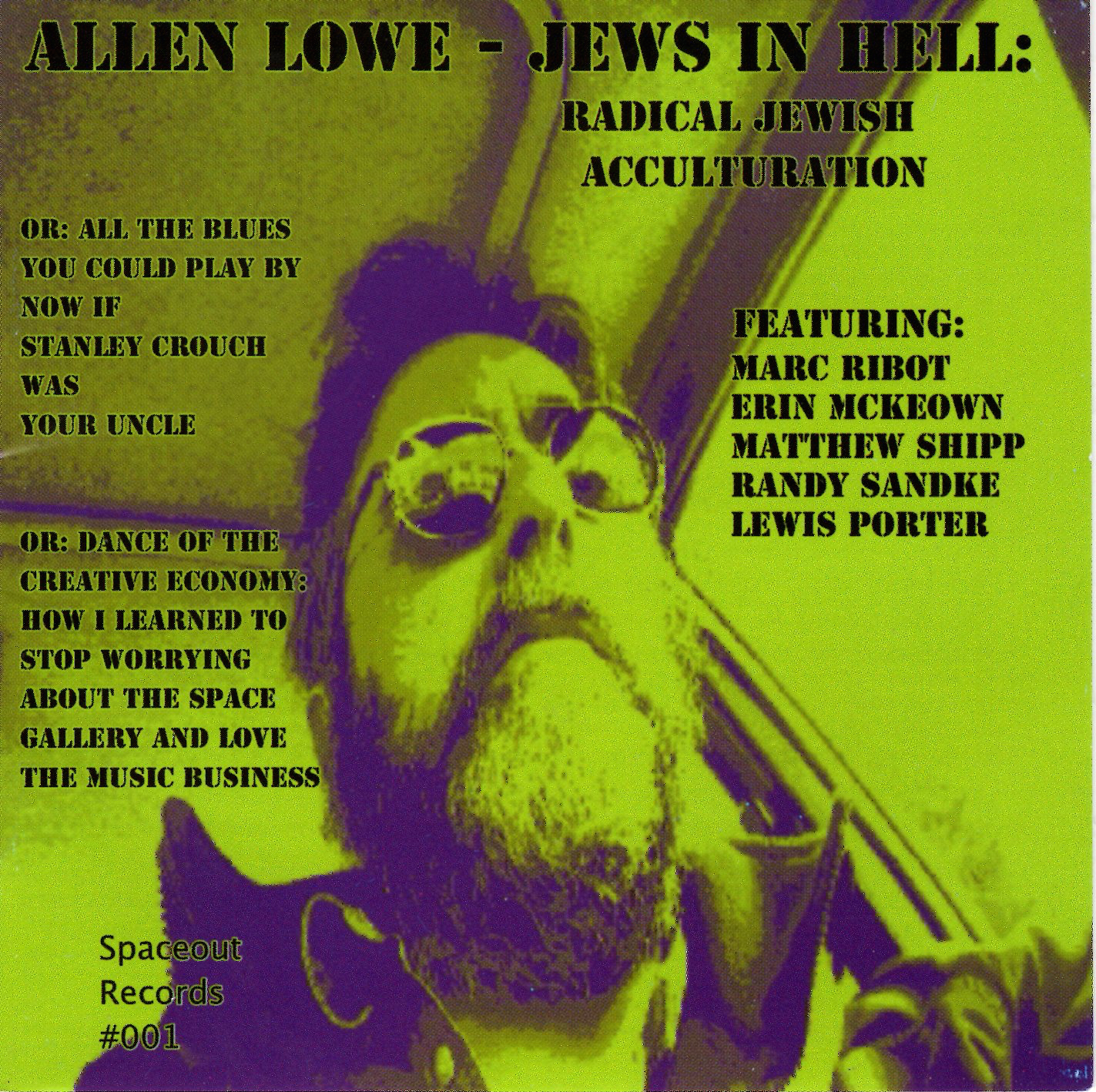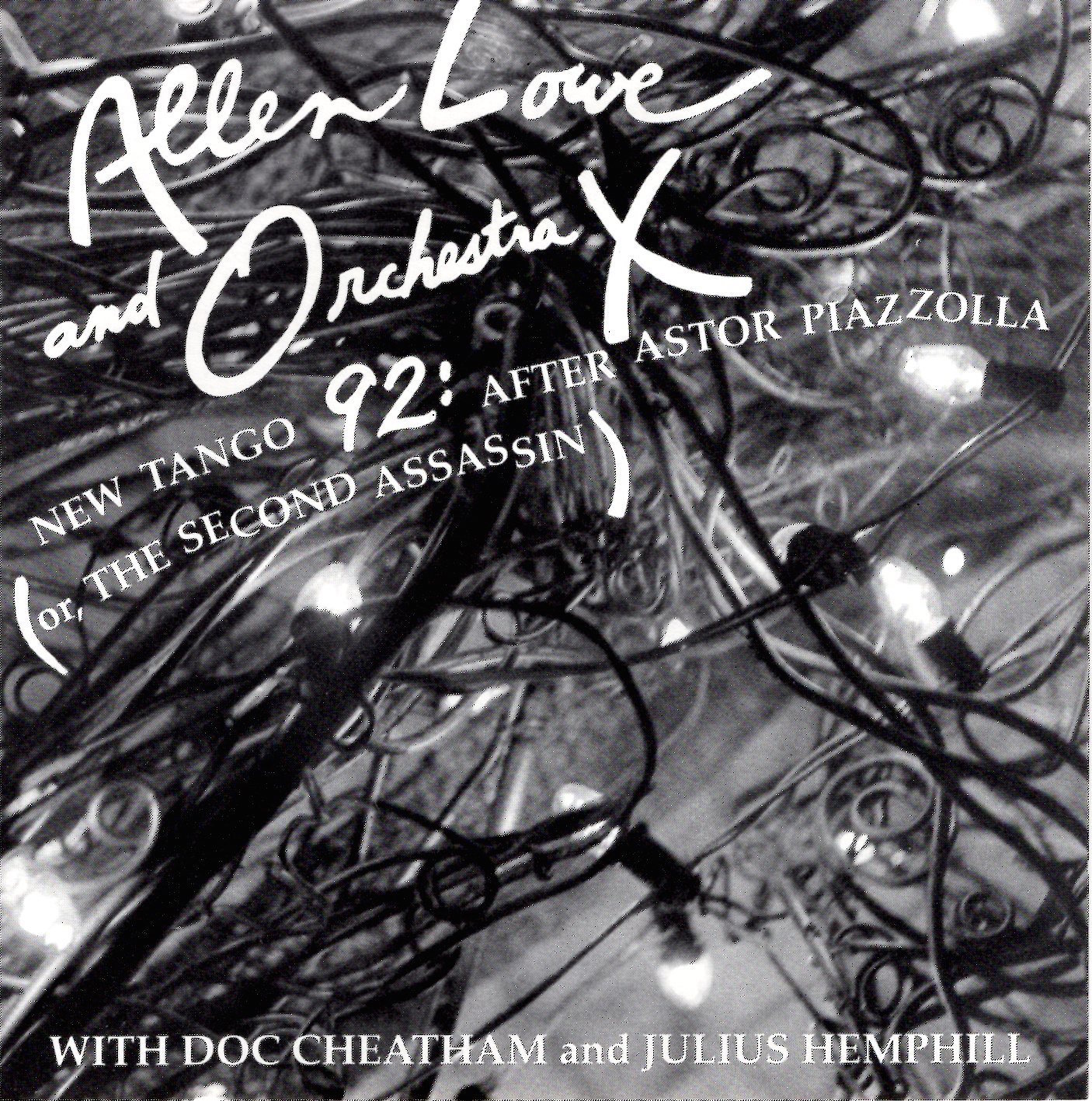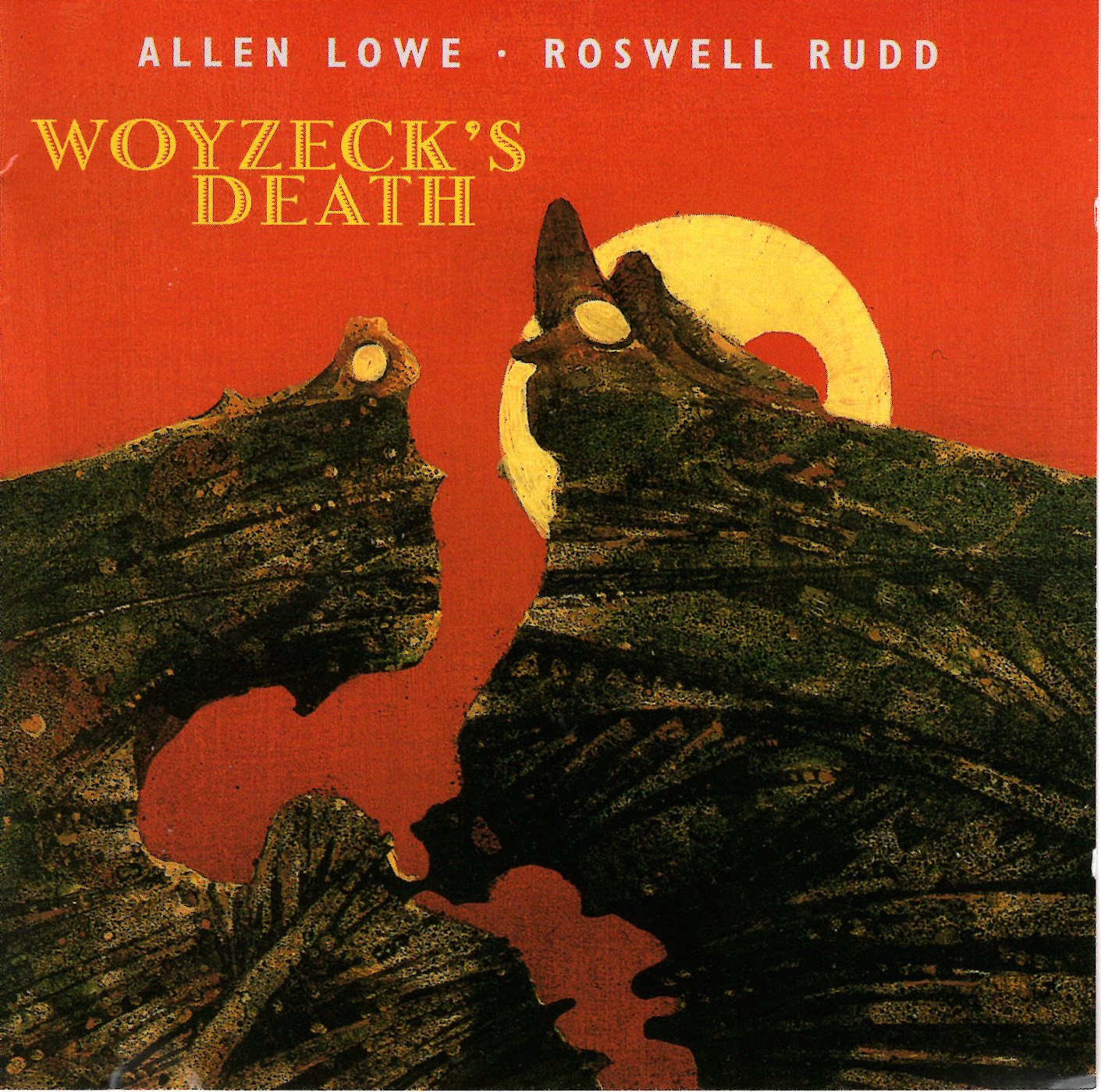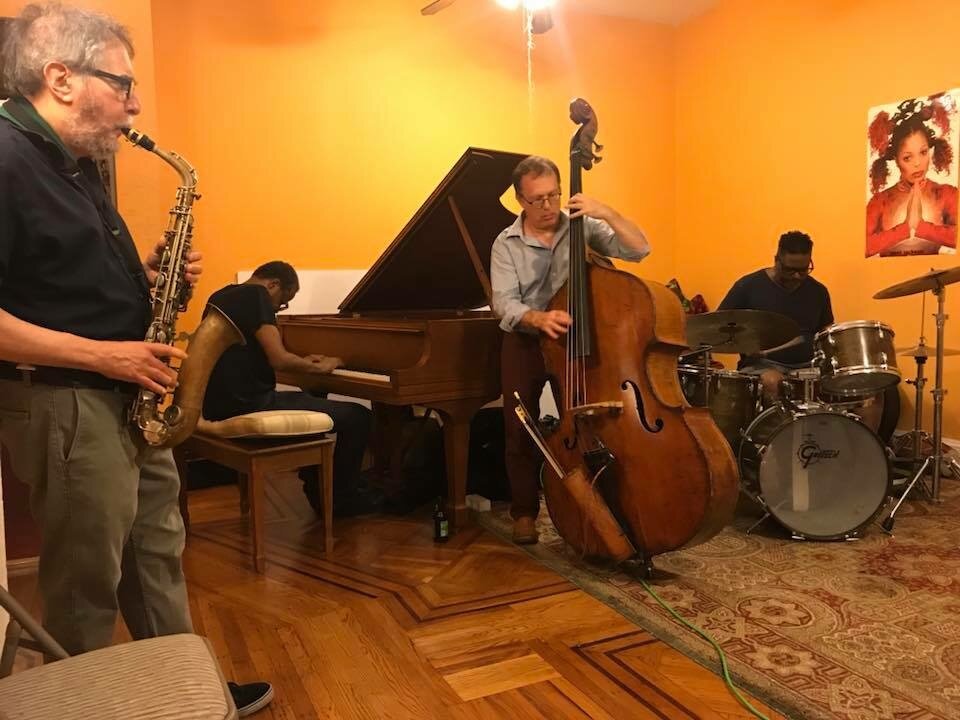Allen Lowe's Blues and the Empirical Truth is one of the most ambitious and fulfilling projects to come out of the jazz world in recent years, a dazzling array of 52 blues and blues-based tracks covering three CDs and about 223 minutes in total. All composed and arranged by Lowe, it took at least seven recording sessions--from 2009 to early 2011--to complete. The end result is compulsive and mesmerizing.
Blues and the Empirical Truth can be seen as a logical milestone in the eclectic, wide-ranging career of Lowe, whose prior recordings included music inspired by the likes of Louis Armstrong and Astor Piazzolla, among others...
How does Blues and the Empirical Truth compare to Oliver Nelson's 1961 Blues and the Abstract Truth? Lowe's presentation is more specific, while Nelson's was more generic. Blues and the Empirical Truth places the blues in various contexts, exploring its societal and cultural derivations and instigations, enhanced by what has sprung from Lowe's personal tastes, influences, and inspirations. There are tributes to numerous diverse individuals, such as swing band vocalist/movie star Doris Day, obscure bebop altoist Dave Schildkraut, famous 19th century black pianist and composer Blind Tom Bethune, and civil rights activists Pauli Murray and Ella Mae Wiggins. Other pieces reference Bud Powell, Elvis Presley, Duke Ellington, Lennie Tristano, the Velvet Underground, Albert Ayler, Dave Brubeck, Pete Brown, and Jelly Roll Morton. As one can see, the reach is mind-boggling. The first three selections alone on CD 1 recall consecutively the work of Ornette Coleman, Charles Mingus, and Julius Hemphill.
Besides Lowe's proficiency and passion on saxophones and guitar (not to mention his included fascinating written annotations), the project's overwhelming success is largely due to Rudd's always distinctive trombone, Matthew Shipp and Lewis Porter's personalized and versatile keyboards, the luminosity of guitarists Marc Ribot and Ray Suhy, the impactful Tom Waits-like vocals of Todd Hutchisen, and the receptive and responsive bass and electronic drums of Jessie Hautala and Jake Millet.
As Lowe asks, "Is blues a matter of feeling or form(at)?," or as he otherwise puts it, "form and feeling as vessels of stylistic transport." It's a constant joy to be on board for the extended and winding ride. Blues and the Empirical Truth should make quite a few Top 10 lists for 2011.
Review by Scott Albin, September 11, 2011 in Jazz Times. Read the original article here.
“Allen Lowe, distinctive composer/saxophonist, put together a cross-generational instrumental ensemble made up of musicians from the New York City area and Maine. To me the core quality in the sound of this band is the result of the integration of inventive amplified guitars and synthesizer atmospheres (provided by the gifted young players from Maine) with resourceful brass and reed wind components from the Gotham scene. Lowe’s writing ranges from traditional-sounding monolithic themes to quirky collaging on more recent American pop and jazz hits. This material is both familiar and challenging to players and listeners alike: its grounding as well as edgyness results from the improvised interactions of the performers. I certainly look forward to hearing more from this ensemble; the integration: fertile and positive; the potential is huge.”


